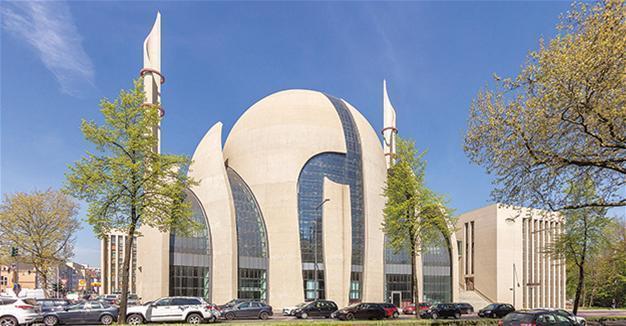German minister urges DİTİB mosques to ensure independence from Turkey
BERLIN - Reuters
 Germany’s largest association of mosques needs to undertake fundamental reforms to ensure its independence from Turkey after reports that its clerics spied on people in Germany, Interior Minister Thomas de Maizière said on March 14.
Germany’s largest association of mosques needs to undertake fundamental reforms to ensure its independence from Turkey after reports that its clerics spied on people in Germany, Interior Minister Thomas de Maizière said on March 14.The Turkish Islamic Union for Religious Affairs (DİTİB) brings clerics from Turkey to serve the 3 million people with a Turkish background who live in Germany. In January, Germany’s chief federal prosecutor opened an investigation into possible spying by clerics sent by Ankara.
“Concrete steps are needed to clearly and transparently ensure the autonomy and independence of the national association and the state associations” of DİTİB, de Maizière said after a meeting of the German Conference on Islam.
De Maizière’s comments came as tensions rise between Turkey and European countries like Germany and the Netherlands. They also follow a warning from Germany’s domestic intelligence agency last week about a big increase in Turkish spying in Germany before an April 16 referendum that will decide whether the current parliamentary system should be shifted to an executive presidency with vastly enhanced powers for President Recep Tayyip Erdoğan.
Turkey’s Religious Affairs Directorate (Diyanet) denied any involvement by its imams in illegal activities and said investigations over alleged espionage defamed the organization.
De Maizière expressed concern the reports of possible spying by DİTİB clerics and said such actions would be unacceptable if proven true. He said an organization influenced to such an extent by another country could not meet the conditions required to be considered a religious community.
Only clear steps to shore up its autonomy would allow DİTİB to maintain its status as a religious organization in Germany, the minister said. He said German states were correct to examine whether they wanted to continue working with DİTİB in shaping Islamic religious studies in their schools.
















